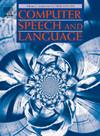你就是你写的东西预训练语言模型时代的作者再识别隐私攻击
IF 3.4
3区 计算机科学
Q2 COMPUTER SCIENCE, ARTIFICIAL INTELLIGENCE
引用次数: 0
摘要
预训练语言模型的广泛使用彻底改变了自然语言处理任务中的知识转移。然而,由于存在重新识别攻击的风险,恶意用户可能会从其他数据集中提取个人身份信息(PII),因此存在潜在的破坏用户信任的问题。为了评估流行的预训练模型可提取个人信息的程度,我们首次在一个标注了人口统计信息(包括位置、年龄和性别)的大型多语言情感分析数据集上对最先进的隐私保护算法进行了广泛的评估和比较。我们的研究结果表明,模型复杂度、预训练数据量与隐私保护嵌入的功效之间存在联系。我们发现,当应用于更大型、更复杂的模型时,隐私保护方法表现出更大的有效性,与非隐私基线相比,改进幅度超过 20%。此外,我们还观察到,在我们的测试环境中,局部差分隐私会带来≈20%的严重性能损失,而使用混合或度量-隐私嵌入技术则可以减轻这种损失。本文章由计算机程序翻译,如有差异,请以英文原文为准。
You Are What You Write: Author re-identification privacy attacks in the era of pre-trained language models
The widespread use of pre-trained language models has revolutionised knowledge transfer in natural language processing tasks. However, there is a concern regarding potential breaches of user trust due to the risk of re-identification attacks, where malicious users could extract Personally Identifiable Information (PII) from other datasets. To assess the extent of extractable personal information on popular pre-trained models, we conduct the first wide coverage evaluation and comparison of state-of-the-art privacy-preserving algorithms on a large multi-lingual dataset for sentiment analysis annotated with demographic information (including location, age, and gender). Our results suggest a link between model complexity, pre-training data volume, and the efficacy of privacy-preserving embeddings. We found that privacy-preserving methods demonstrate greater effectiveness when applied to larger and more complex models, with improvements exceeding over non-private baselines. Additionally, we observe that local differential privacy imposes serious performance penalties of in our test setting, which can be mitigated using hybrid or metric-DP techniques.
求助全文
通过发布文献求助,成功后即可免费获取论文全文。
去求助
来源期刊

Computer Speech and Language
工程技术-计算机:人工智能
CiteScore
11.30
自引率
4.70%
发文量
80
审稿时长
22.9 weeks
期刊介绍:
Computer Speech & Language publishes reports of original research related to the recognition, understanding, production, coding and mining of speech and language.
The speech and language sciences have a long history, but it is only relatively recently that large-scale implementation of and experimentation with complex models of speech and language processing has become feasible. Such research is often carried out somewhat separately by practitioners of artificial intelligence, computer science, electronic engineering, information retrieval, linguistics, phonetics, or psychology.
 求助内容:
求助内容: 应助结果提醒方式:
应助结果提醒方式:


